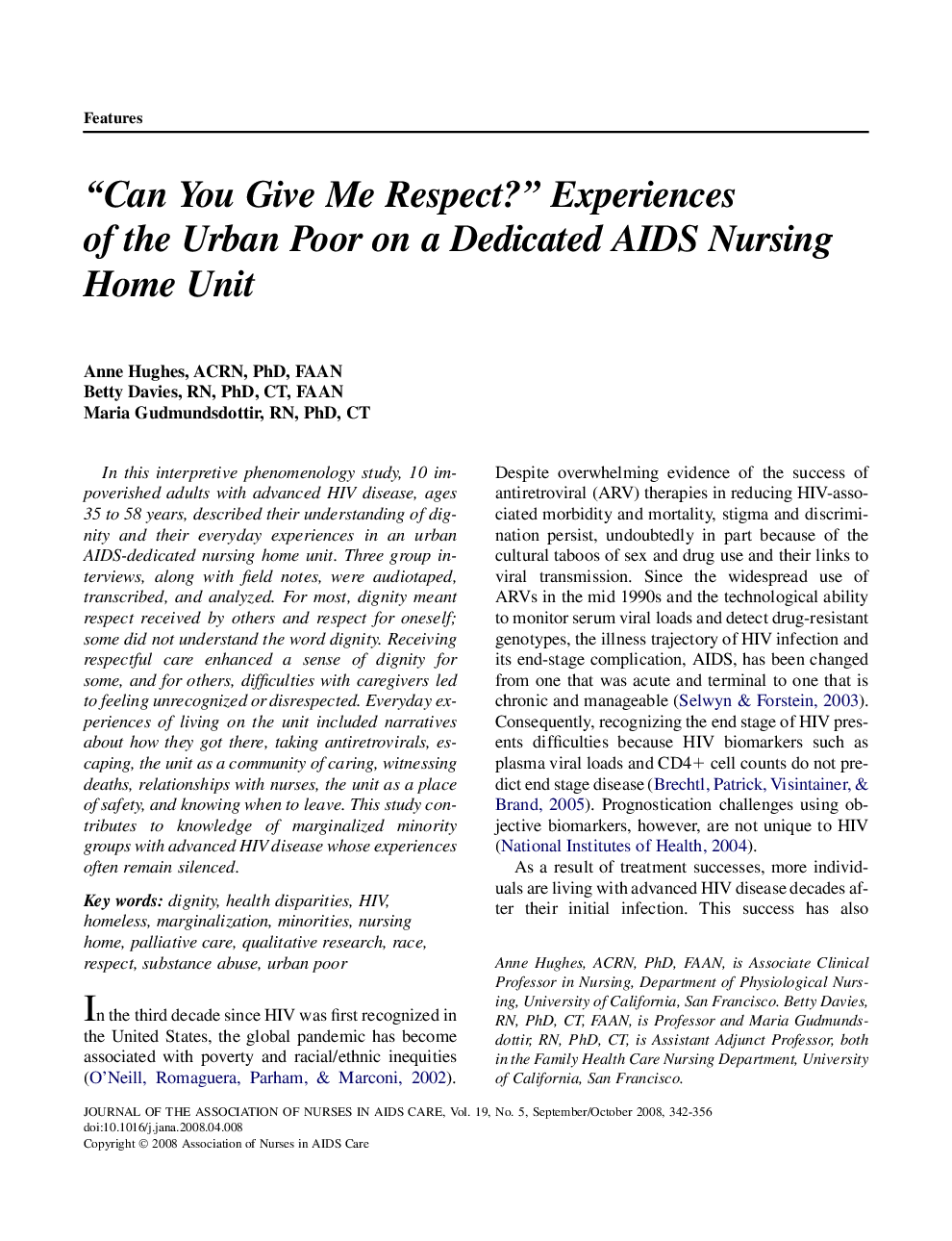| Article ID | Journal | Published Year | Pages | File Type |
|---|---|---|---|---|
| 2660200 | Journal of the Association of Nurses in AIDS Care | 2008 | 15 Pages |
In this interpretive phenomenology study, 10 impoverished adults with advanced HIV disease, ages 35 to 58 years, described their understanding of dignity and their everyday experiences in an urban AIDS-dedicated nursing home unit. Three group interviews, along with field notes, were audiotaped, transcribed, and analyzed. For most, dignity meant respect received by others and respect for oneself; some did not understand the word dignity. Receiving respectful care enhanced a sense of dignity for some, and for others, difficulties with caregivers led to feeling unrecognized or disrespected. Everyday experiences of living on the unit included narratives about how they got there, taking antiretrovirals, escaping, the unit as a community of caring, witnessing deaths, relationships with nurses, the unit as a place of safety, and knowing when to leave. This study contributes to knowledge of marginalized minority groups with advanced HIV disease whose experiences often remain silenced.
